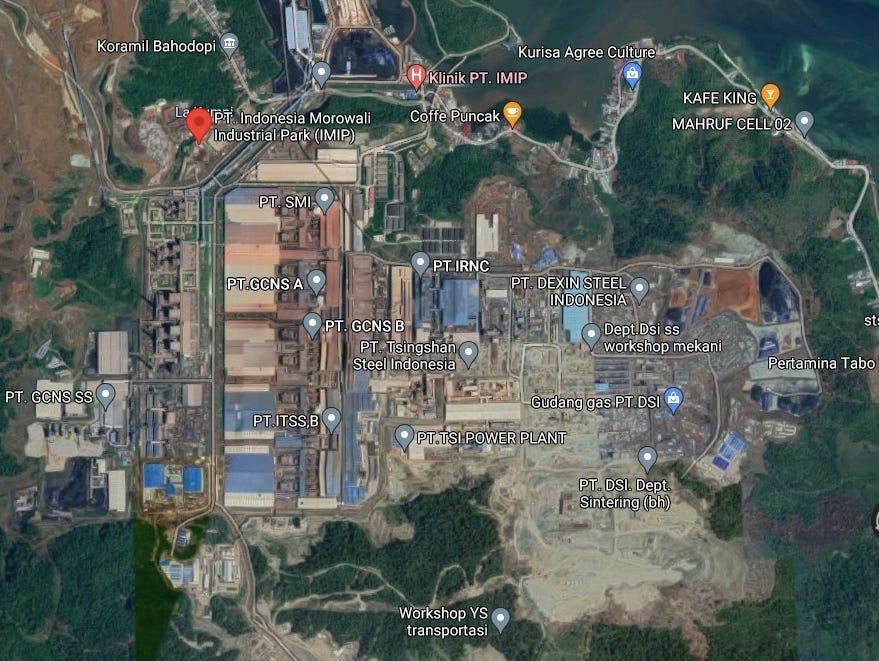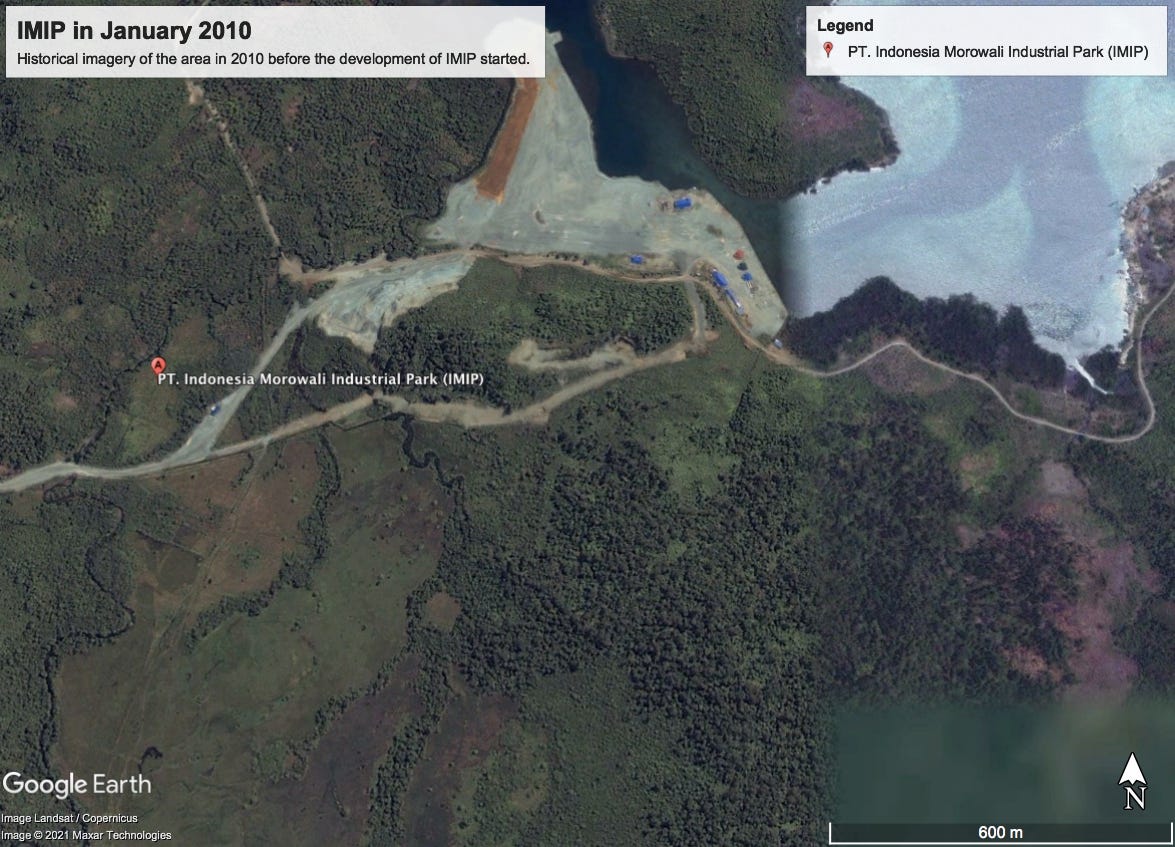Hi everyone and a special welcome to my new subscribers. Selamat Hari Raya Idul Fitri to everyone getting ready for the holiday.
This week I want to spotlight an industrial park in Central Sulawesi. It’s an industrial park so large, it has its own 5-star hotel and airport.

The Indonesia Morowali Industrial Park (IMIP) in Morowali Regency, Central Sulawesi is focused on the nickel smelting and stainless steel production. To get a sense of the size and scale of IMIP, check out the photos on the website of Nickel Mines Ltd, an Australian company which has invested there.
You can see the industrial park’s dedicated infrastructure up close:
There’s also a purpose-built private airport just outside the main factory compound. It is used exclusively by IMIP tenants and their clients.
What is interesting about IMIP is not simply its scale and the expanse of its supporting infrastructure, but the story its development tells about a controversial government policy.
This enormous project was started by Chinese company Tsingshan, the world’s largest stainless steel producer, as a response to the Indonesian government’s ore export ban policy in January 2014. The ban was enacted to encourage the development of more downstream mineral processing facilities in Indonesia, allowing the country to benefit more from its rich mineral endowment.
The export ban had its legal basis in the 2009 Mining Law, which permits the government to manage mining to benefit Indonesia’s national interest. Many international mining companies perceived the ban to be directed at them, but large American companies were granted an exemption. However, the real target of the ban was the smelting industry based in China. In 2014, China imported 70 percent of its nickel ore from Indonesia, mostly for use in stainless steel manufacturing.
While the export ban was not directed at any miner in particular, blunt policy tools such as this have a domino effect.
At the time of the export ban, Nickel Mines Limited, a company headquartered in Sydney, had developed a small mining operation at Hengjaya mine in Morowali. It had all the necessary licenses and permits for international export of its nickel ore. The company shut down mining operations at Hengjaya not long after the export ban was enacted and had to seek domestic customers for its ore.
Tsingshan began its work on the IMIP to comply with the export ban and build domestic smelting capability. Branded a Belt and Road Initiative (BRI) project, construction began in 2013. IMIP and Hengjaya mine are approximately 30 kilometers apart.
Things took a turn as Tsingshan’s stainless steel production began. The facility’s need for high-quality nickel feedstock created an opportunity for the Australian company. Its fortunes reversed, Nickel Mines Ltd signed an offtake agreement with Tsingshan and restarted operations at nearby Hengjaya in 2015.
In 2017, both companies took their partnership another step forward. They signed an agreement to collaborate and fund the construction of 2 nickel smelters, known as rotary kiln electric furnaces (RKEFs). The next year Nickel Mines Ltd listed on the Australian Stock Exchange (ASX:NIC).
It appears the ore export ban accomplished what the Indonesian government wanted. Between 2014 and 2020, $6.5 billion in foreign investment has flowed into Morowali and its economic output more than tripled in six years from the development of nickel processing activities there.
In the case of Nickel Mines Ltd, the company ended up better off in the long run, having demand for their ore driven by heavy industry located a short distance from where they dig it up. It’s not clear that other small-scale miners were so lucky.
Seven years down the track, the policy has also positioned Indonesia to become a key part of an emerging industry producing batteries for electric vehicles. Nickel is an important input into lithium ion batteries. Nickel mined for this purpose will need to undergo a different kind of mineral processing than what is currently done for the stainless steel plants at IMIP. Plans are in place to develop battery-grade nickel processing in the Morowali area.
The IMIP is a testament to how powerful policy can be, and how adaptable industry can be to abrupt policy changes. The Indonesian government had effectively re-shaped an industry in its favor. But I wouldn’t count on this kind of policy always having such a positive result. As Indonesia seeks to attract more investment and its trade becomes more intertwined with its neighbor’s value chains, it will need to carefully consider what kind of policy instruments to wield. A bold move such as an ore export ban might not always end with an IMIP.
Thanks for reading and get in touch if you have any other stories about how ore export bans have re-shaped industry in Indonesia.





Brilliant strategy paying dividends like no other
Legislative power defined to inspire Private Enterprise or Corporate development versus the manipulated kind or subsidised
What’s wrong with Australia could be summed up right here 🎩